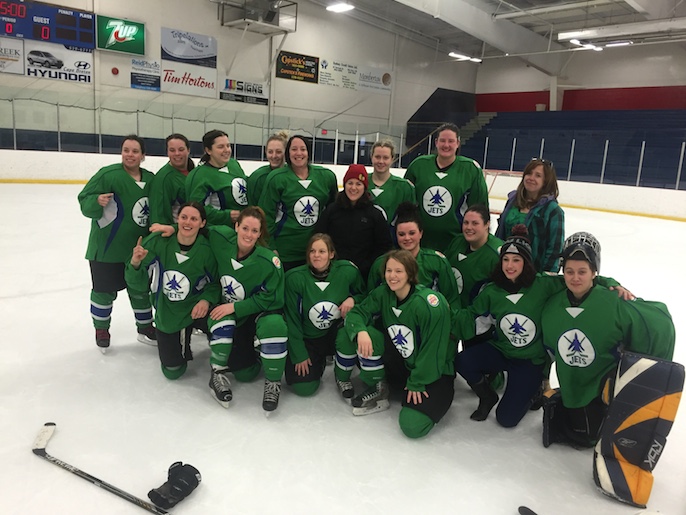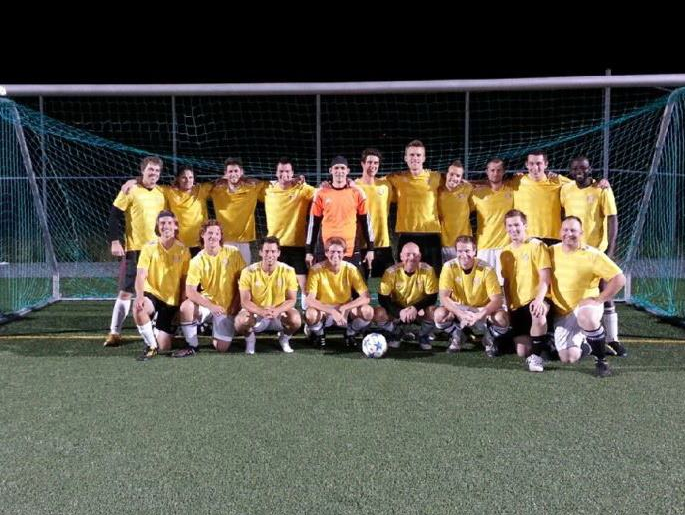TeAAM Players
Interviewed by Angus MacCaull
Many skills from sports come in handy at the office. Stacia Peters in Sydney River and Aneill MacCaull in Lower Sackville share a few thoughts on teamwork below.
What team sport do you play these days?
STACIA: I have been playing hockey for 27 years and baseball for 16 years.
ANEILL: Soccer for the most part.
What’s your position?
STACIA: I play defense for hockey and I am a catcher for baseball.
ANEILL: Center midfield.
How does that position help the team?
STACIA: With hockey I help the team to make the plays that will defend our goaltender. I make sure we get to where we want to go with our next move and protect what’s most important: the goaltender. And for baseball I need to make sure I catch the ball so no one else gets ahead. This role is a bit more tricky. Opponents are trying to go with the ball and you have to be aware. Every time the opposing team gets up to bat you’re watching and waiting to see what kind of move that a player makes—and then remember it so you know for the next time they’re up. You have to communicate the potential moves with your pitcher and to the players on the field so they can be ready.
ANEILL: Center mid is responsible for controlling the play and moving the ball on both offence and defence.
What are some of the teamwork skills in your sport?
STACIA: For both it’s all teamwork. You wouldn’t be able to make either one of these sports work alone. From passing the puck to throwing the ball, you’re always taking the chance on your teammates and have to have the confidence that it will work. It doesn’t work all the time, but you have to take the chance and trust in your team. And it’s always fun win or lose.
ANEILL: Communication and organizational skills are the two biggest. With 11 people on the field, everyone has to be organized and know where they are supposed to be.
Are there any ways that you bring some of those skills to your job in insurance?
STACIA: Yes; trust, confidence, reaching goals, communication, the knowledge of watching and learning and remembering each play.
ANEILL: Definitely. As a broker, organization is probably the most important part of the job because we handle so many client files, all with their own coverages and needs. Thankfully our BMS and AA Munro’s processing team makes the job of organization a lot easier. And communication is also very important. Most consumers don’t understand insurance and don’t know what they are buying other than the price point. A good broker has to find a way to communicate effectively with each client, which is hard because not everyone communicates the same way.
What does it mean to “be a team player”?
STACIA: I honestly can say I am not sure what it would be like NOT to be a team player. What it means to me would be, win or lose, to always give your teammates the push and confidence to be better. Positivity in life is very important. And you also need to remind your teammates of what they were supposed to do and didn’t. We all need help from time to time and being a team player allows you to do this!
ANEILL: For me being a team player means focusing on one goal together. Everyone has different roles and a lot of times we tend to focus on those roles rather then what it is that we are trying to accomplish. A team player understands that sometimes you need to step outside of your assigned role in order to help the team achieve its end goal.






AWESOME GUYS…:) Thanks for sharing your stories and the love of sports with us :)
Love this! Teamwork is so important in all aspects of life, to rely on each other, build each other up and focus on the positive :)